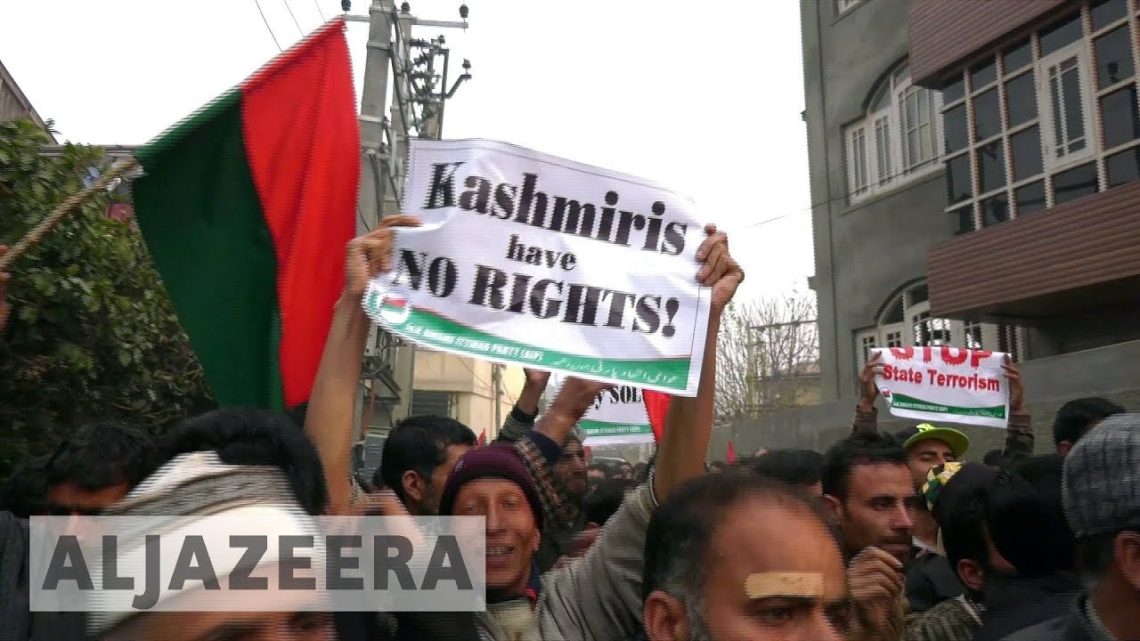
Unrest Grows in IIOJK as Various Sectors Protest Against Indian Illegal Authorities Policies
January 11, 2024 Off By Sharp MediaProtest demonstrations erupted in the Jammu region of Indian illegally occupied Jammu and Kashmir as various groups expressed their dissatisfaction with the authorities’ policies. The unrest encompassed a range of issues, from political concerns to economic hardships, prompting citizens to voice their grievances.
One significant protest was led by activists of the Jammu and Kashmir National Conference at Mankote in Mendhar Sub Division. They called for the restoration of democracy in the occupied region and an investigation into the alleged embezzlement of funds. The demonstrators, under the leadership of Congress’s Pir Panjal Zone president, Javed Ahmed Rana, emphasized the urgent need to revitalize grassroots democracy, expressing discontent over the expiration of the tenure of elected members of Urban Local Bodies and Panchayats.
Javed Rana highlighted public dissatisfaction with the District Development Councils system, indicating a decline in acceptance. Additionally, serious concerns were raised regarding the misuse of funds allocated for various government schemes, including those managed by the National Bank for Agriculture and Rural Development and the Pradhan Mantri Gram Sadak Yojana.
Another focal point of discontent was the residents of Arigatoo village, who protested against the substantial hike in power bills. They reported a 50 percent increase in monthly tariffs over the past two years, attributing the surge to the financial strain caused by floods and poverty in the region. The demand for a rollback of additional power tariffs was accompanied by a warning that the removal of electric poles might be considered if the authorities did not address the issue promptly.
Meanwhile, the Private Schools Body in Jammu expressed vehement opposition to a government order tagging students of private academic institutions as having “expired affiliations” with government schools. The protesting private school owners argued that the decision was discriminatory, emphasizing their institutions’ decades-long service to the community.
Employees of the Life Insurance Corporation in Jammu staged a ‘one-hour walk-out strike’ to press for their long-pending demands, particularly negotiations on wage revision. The protest underscored the discontent among workers who emphasized the urgency of addressing their concerns.
The Road Transport Corporation Volunteer Retired Employees Association also joined the wave of protests, criticizing the Finance Department and higher authorities of the Transport Department for not clearing their pending dues. Their demonstration, led by Dev Raj Bali, aimed to draw attention to their prolonged grievances, accusing authorities of neglecting their demands.
As unrest grows across various sectors in Jammu, the government faces mounting pressure to address the multifaceted challenges faced by the residents and organizations in the region.

